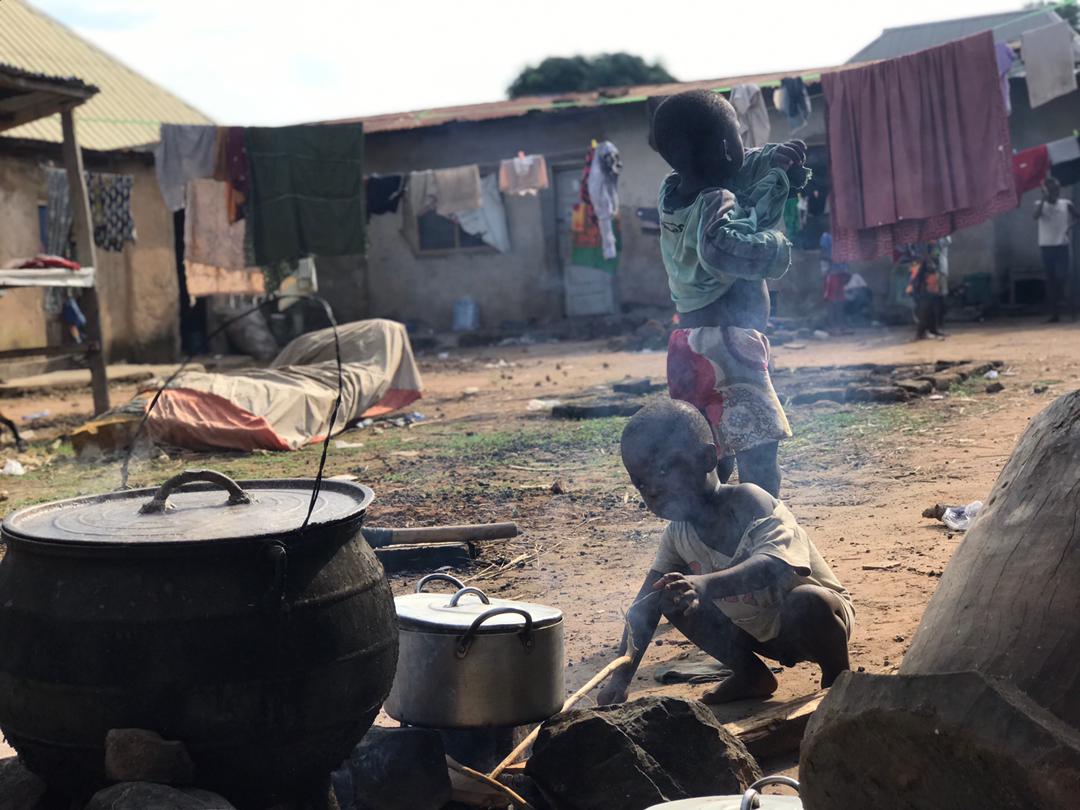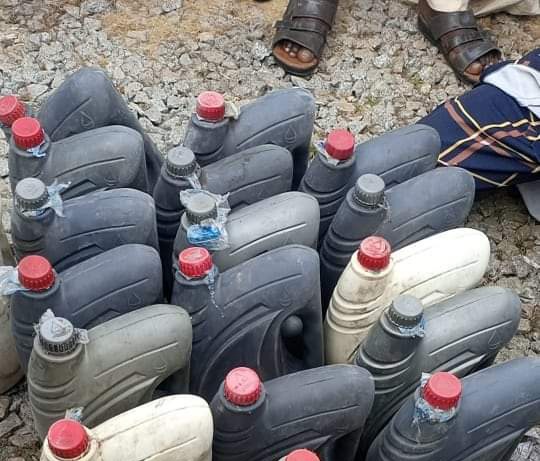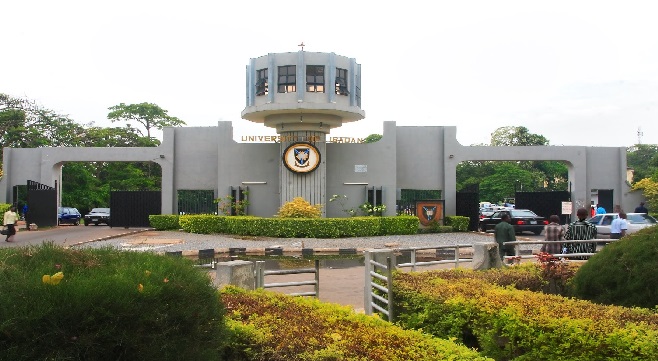Daniel Angwe in his mother’s makeshift restaurant kitchen
Two-year-old Daniel Angwe appeared unconcerned about the environment around him as he ran around playing with other children near his mother’s makeshift restaurant. Clothed only to the waist and with snot all over his nose, Daniel broke out in loud cries at intervals and tugged at his mother’s cloth where she sat in the kitchen, cutting vegetables.
Comfort Angwe, his mother, tried what she could to appease the child by wiping his tears, and in no time he got distracted and went back to playing.
Just beside where Comfort sat was a three-stone firewood place, with the day’s pot of soup boiling on the fire. Her eyeballs had turned red and tears trickled down her cheeks as a result of firewood smoke.
Her children were also not left out of the effects of the smoke, as she said they sometimes complained of eye pain, headaches and difficulty sleeping at night.
Advertisement
“It affects them very well, especially their eyes. They usually complain that it is paining them and it makes them cry,” Comfort said.
According to her, she would prefer gas because it would help her health and that of her children and also boost her business, but there are no funds.
“I don’t have money; how will I buy it?” she asked.
Advertisement
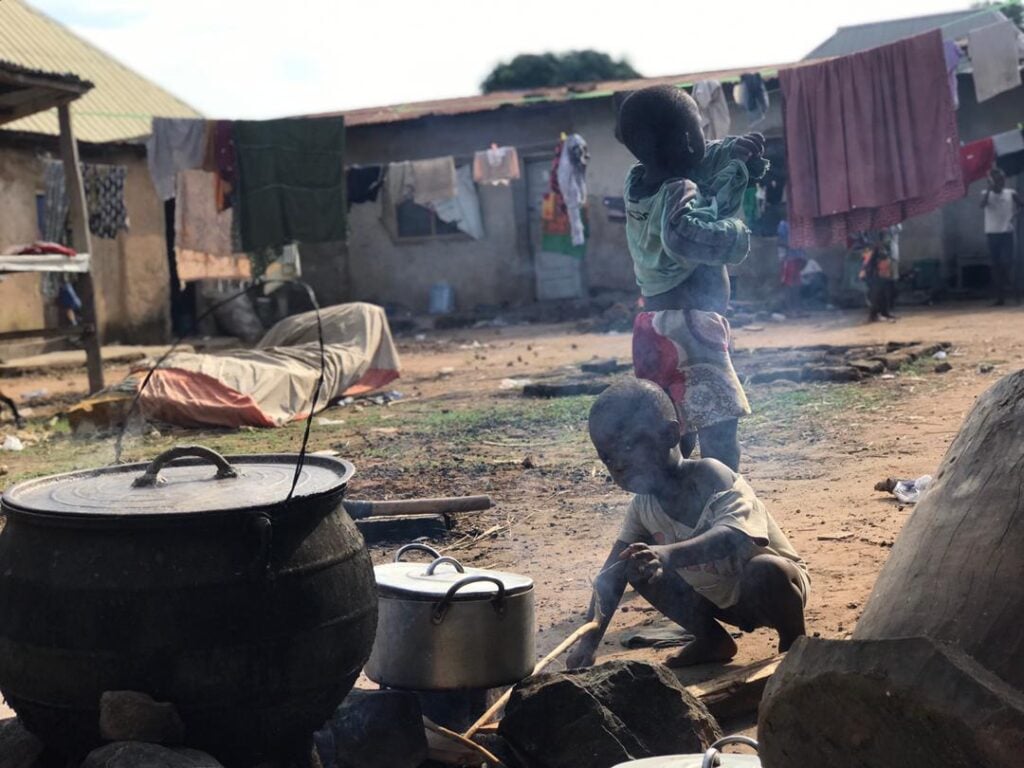
A World Health Organisation WHO report shows that more than one in four deaths of children under five years are attributable to unhealthy environments.
Speaking on the effects of environmental pollution, Henrietta Fore, executive director, United Nations Children’s Fund (UNICEF), called for businesses to “ensure that their practices are protective of the natural environment on which children depend”.
But for Comfort, doing business in a polluted environment is a matter of survival.
“I know the smoke will not kill them, except that it is affecting their eyes. My mother used this method of cooking and she did not die,” Comfort said.
Advertisement
But Adetoun Mustapha, councillor for Africa at the International Society of Environmental Epidemiology (ISEE), says Comfort’s position is wrong because for children, their “immune systems are still developing, and their lungs are still growing”.
Mustapha said children need more air per unit of body weight than adults, but living in close proximity to polluting fuels used for cooking could cause health complications like asthma, decrease in pulmonary function, brain damage and negative effects on their mental and motor development.
‘CLIMATE CHANGE IS THE GREATEST THREAT TO CHILDREN’
According to the UNICEF climate risk index report released in August 2021, climate change is the greatest threat facing the world’s children and young people, with one billion children at “extremely high risk”.
Advertisement
In Nigeria, Comfort’s children are not alone in their suffering. Out of 163 countries, the country ranks second on the list of nations where children are most vulnerable to climate change.
For pupils of Lynwofri International Academy at Trademore Estate, Abuja, any rainy day automatically becomes a no-school day as the school cannot risk another experience of what happened on September 13, when flood from rainfall the previous night destroyed exercise books, textbooks, uniforms, desks, creche beds, and computers.
Advertisement
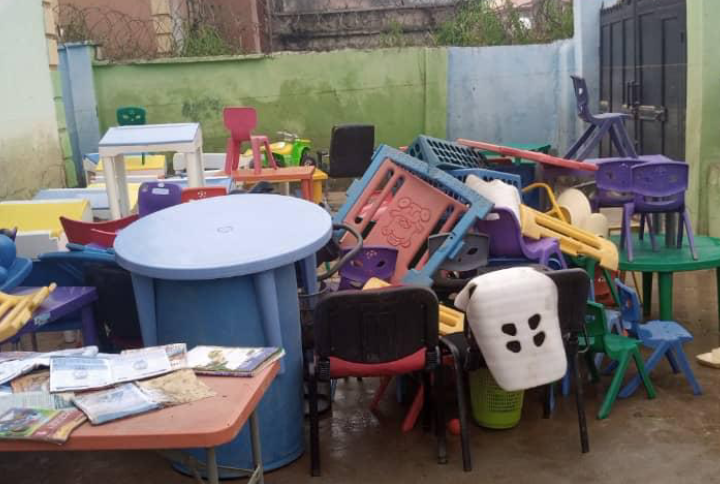
Blessing Nsofor, the school’s head teacher, said she remains grateful that it was a weekend as “a good number of the children would have died because we wouldn’t have been able to save all the children”.
Although the school cleared its surrounding gutters and fortified its walls, some parents withdrew their children, while others rush to pick their children from the school once there is any sign of rain.
Advertisement
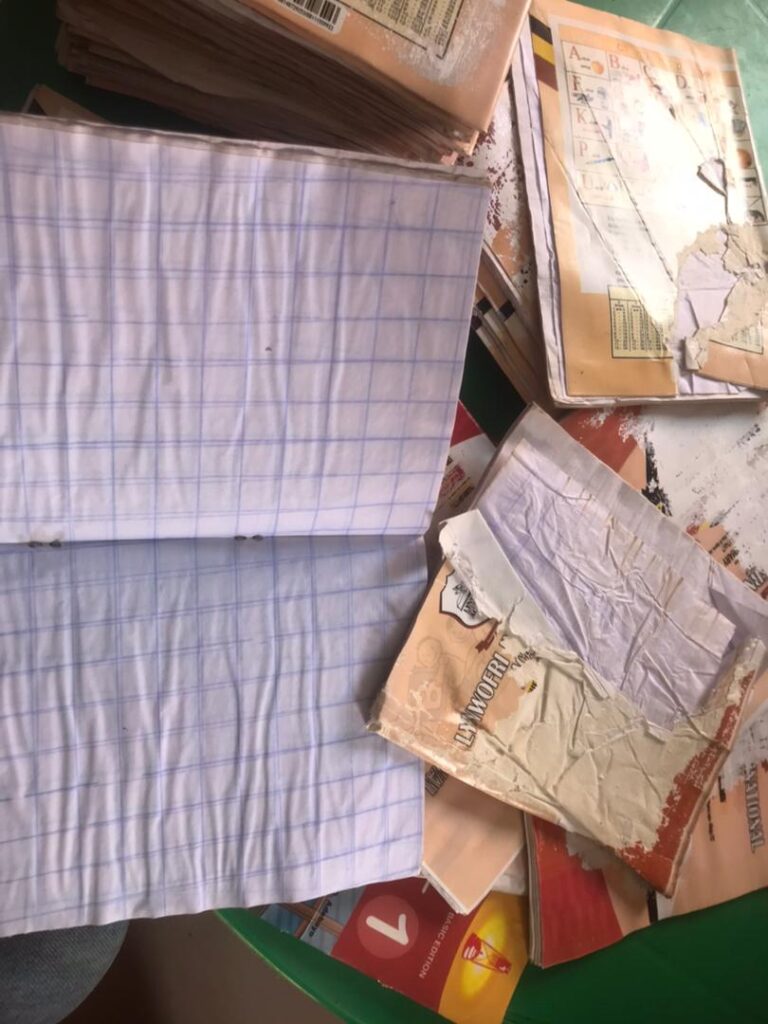
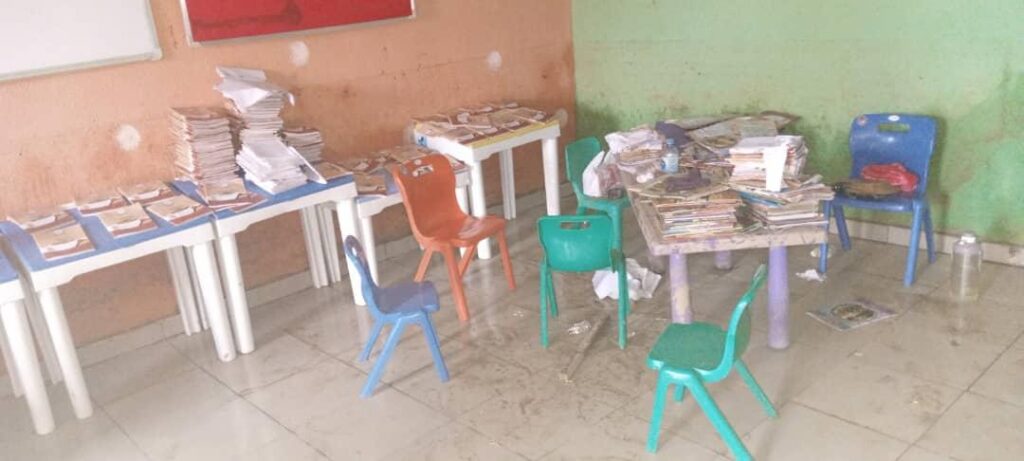
CLIMATE CHANGE AND CHILD RIGHTS
Advertisement
Away from education, the issue of water scarcity has become prevalent in Nigeria’s northern region and children are mostly at risk as they have to go long distances in search of water which has become a scarce resource due to climate change.
Ngohide Terlumun, aged 11, and 16-year-old Suleman Mohammed are some of the victims affected by water scarcity.
Squatting near a hole to fetch water, Terlumun hung her head in despair when asked about the water situation in Ipav Mbagule, her community in Gboko LGA of Benue state.
She spoke about constant battles with cholera, diarrhea and bilharzia, adding that sometimes, she doesn’t go to school after fetching water in the morning as a result of house chores.
Terlumum couldn’t converse in English, but with the help of an interpreter, she spoke in her local dialect about what children of her community go through.
“I wish the government can provide another water [dig a borehole] for us so we can stop drinking this water,” she said.
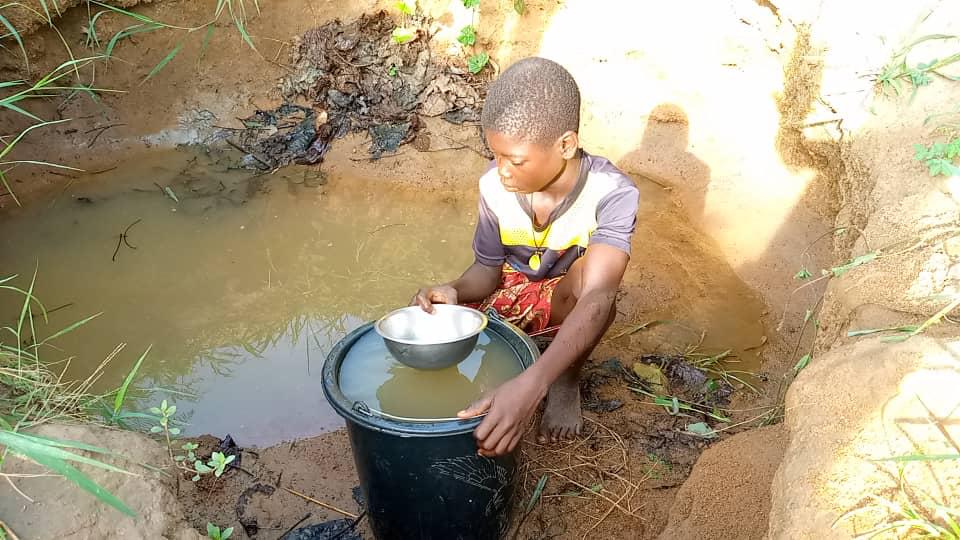
Ajibe Terlumum, her father, said they use water from a dirty stream, but when it dries up, they have to dig holes in the ground to find water.
He also said the community is aware that the water is not healthy but they keep using it because there is no alternative.
Children in Nigeria’s northern region form part of the 920 million children currently exposed to water scarcity, and the situation is likely to worsen as climate change increases severity of droughts and contamination.
For Mohammed, he wakes up as early as 6am to find water in Damba, his community in Zamfara where wells have dried up and there are no infrastructural water facilities like boreholes. The only accessible source of water is an algae-covered dam in a neighbouring village 7km away from Damba.
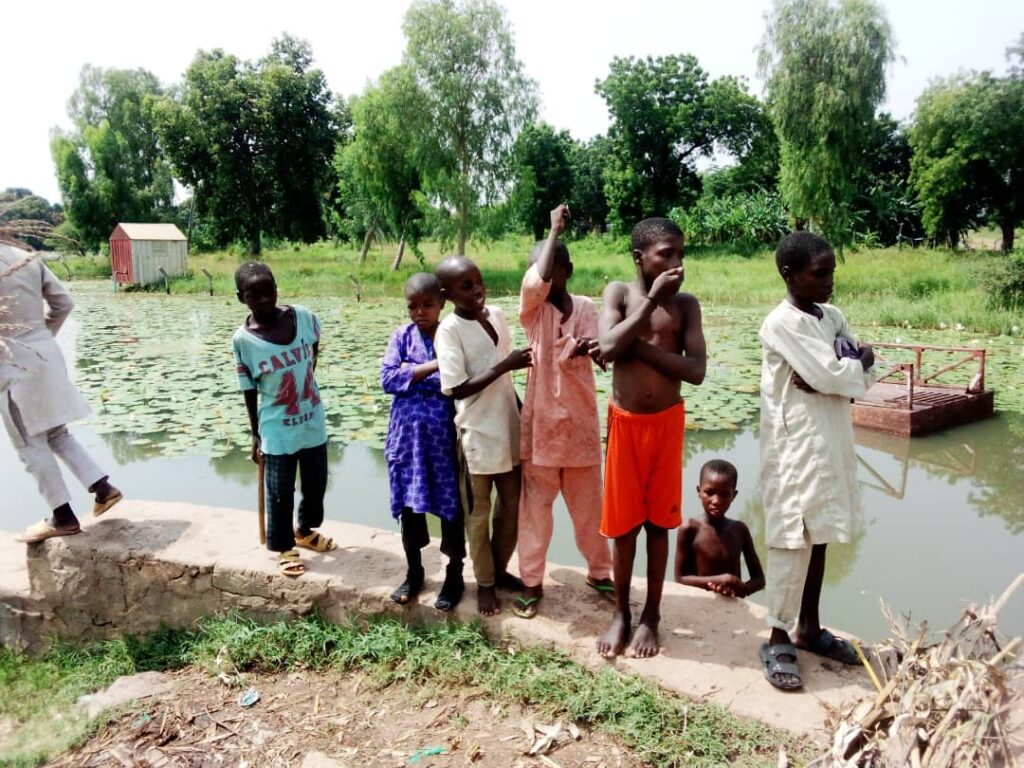
Despite waking up early, Mohammed said he sometimes doesn’t go to school or ends up going late and doesn’t learn much before the 12pm closing time.
“We have to go a long distance in search of water due to the scarcity. So, we waste time before we make it to school. The school opens by 8am, but we hardly go to school before 10am,” Mohammed said.
Circumstances such as climate change and conflict in Nigeria’s northern region have negatively impacted Mohammed’s education. At 16, he is still in primary six and despite having the desire to go to school, there is a tendency that he might not further his education if such circumstances persist.
Speaking on the development, Habib Muhammed, a climate change researcher, said water scarcity has become more frequent because global warming has caused intense heat which causes more evaporation from the water bodies.
With children suffering significantly from the impact of climate change, there have been calls for world leaders to take decisive action.
Greta Thunberg, a Swedish climate activist, told world leaders at the Youth4Climate summit in Milan, to move from words to action.
“This is all we hear from our so-called leaders — words that sound great but so far have not led to action. Our hopes and ambitions drown in their empty promises,” Thunberg said.
Okunola Olasunkanmi, a disaster risk management expert, said forced migration, food shortages and conflict resulting from climate change can make children develop post-traumatic stress disorder (PTSD).
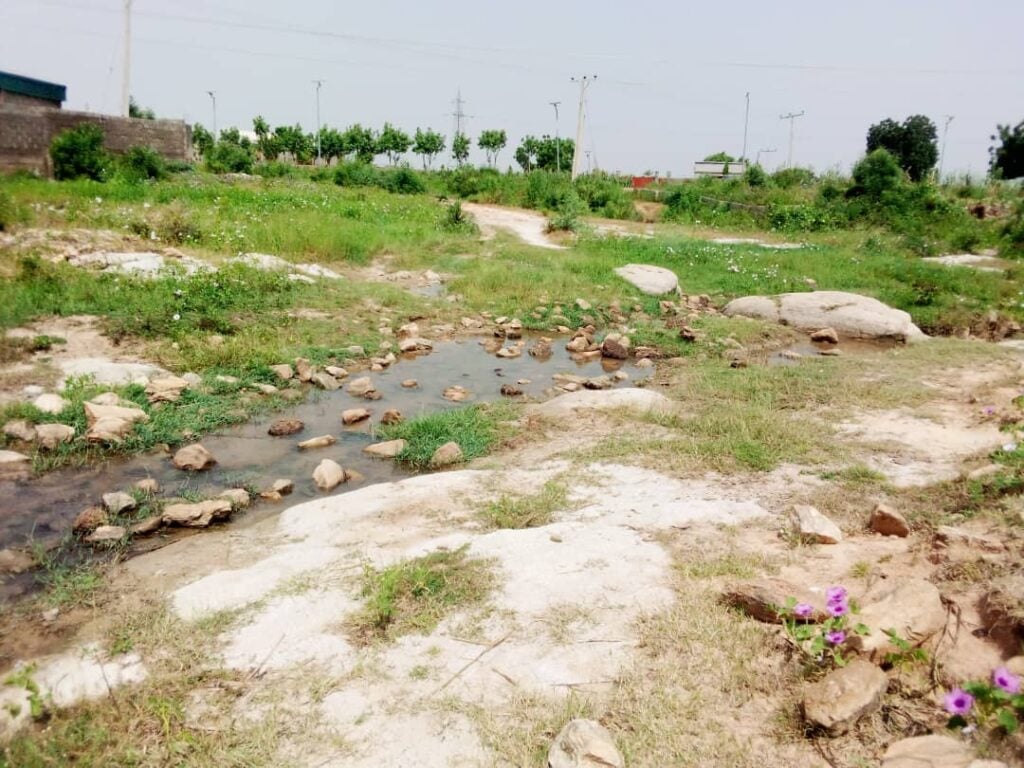
WHAT ARE THE SOLUTIONS?
In the words of Fore, children have their whole lives ahead of them and “any deprivation as a result of climate and environmental degradation at a young age can result in a lifetime of lost opportunity”.
As part of efforts to seek solution to the climate change crisis, the federal government recently announced the adoption of a clean cooking policy.
There have also been several projects awarded by the federal executive council (FEC) on addressing environmental pollution.
But stakeholders say more needs to be done.
On his part, Olasunkanmi advocated sensitisation in schools and communities, adding that climate education be adopted to teach children skills that can help them adapt to climate change in cases of emergency.
Elizabeth Andrew-Essien, a professor of environmental resource management at the University of Calabar, agrees that education is pertinent, adding that the UNICEF report is a wakeup call for Nigeria.
“If we don’t make appropriate investments at that level, in social security, in nutrition, in health care, in education to secure the future of the average child, then we are building children who may not be globally positioned to face whatever insecurities that may come their way,” Andre-Essien said.
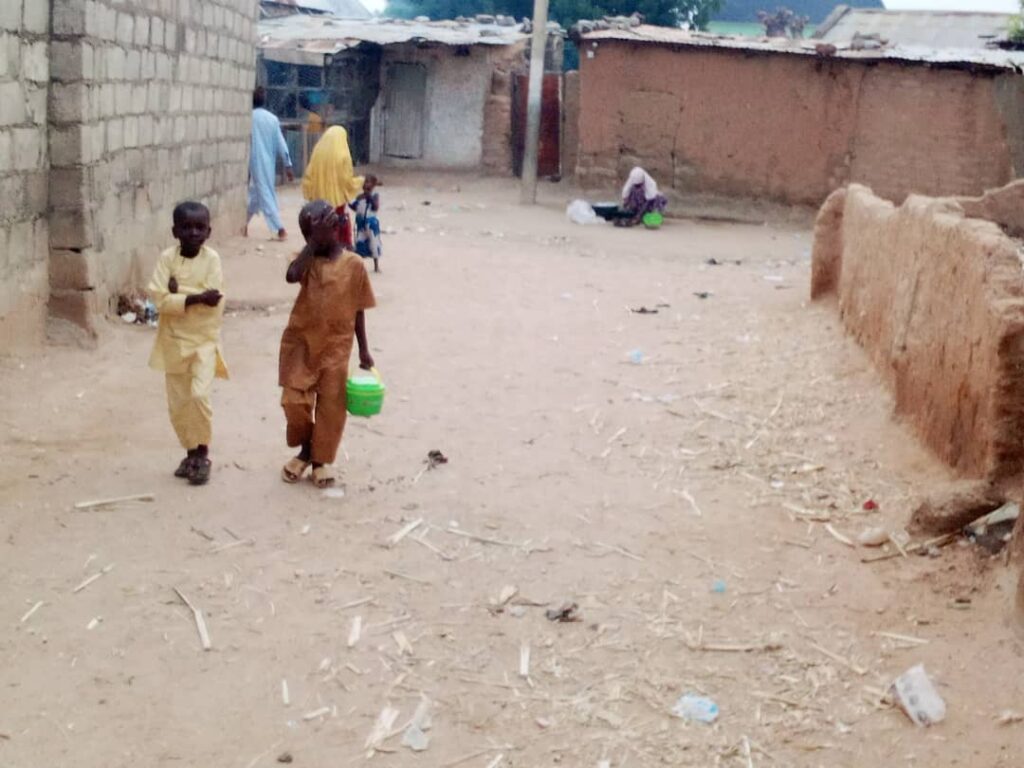
She also called for government partnerships with the private sector for more services to secure children’s future.
Regarding pollution, Mustapha believes that switching to cleaner fuels for household cooking, heating and lighting activities can improve the air quality within homes.
“It is imperative for the Nigerian government to ensure cleaner fuel such as cooking gas and electricity are available and affordable. Also, to minimise children’s exposure to polluted air, schools and playgrounds should be located away from major sources of air pollution like busy roads and factories,” Mustapha said.
As the world discusses climate change at COP26, Nigerian children like Angwe, Mohammed and Ngohide silently wish that their concerns would be well represented and that the summit yields results for the protection of their future.
This story was produced under the NAREP Climate Change Media 2021 fellowship of the Premium Times Centre for Investigative Journalism.
Add a comment
